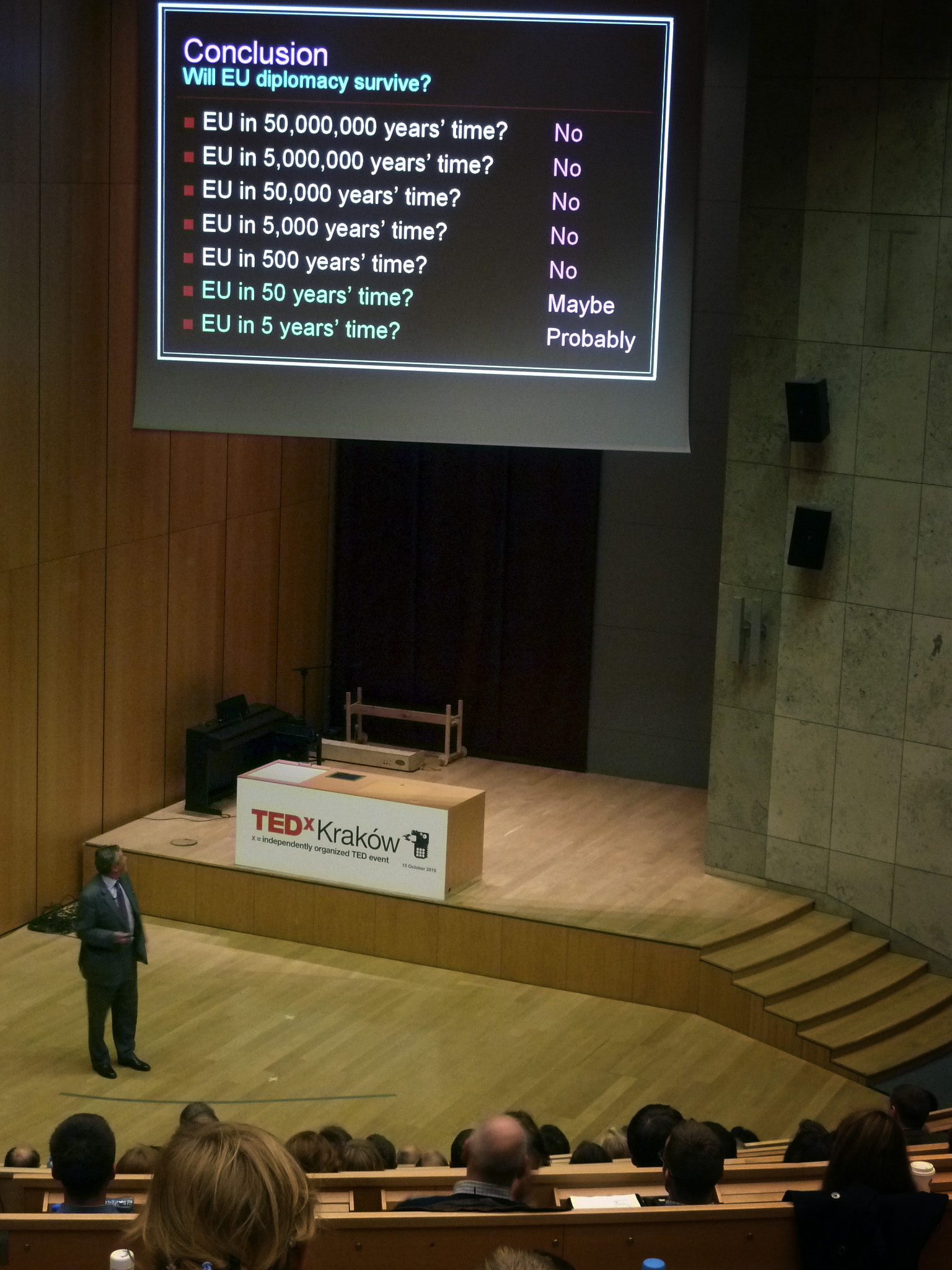So. Off to Cambridge tomorrow, to take part in a Cambridge Union debate:
This House Believes The UK is better off in the EU
This one raises interesting public speaking challenges.
It’s a high-powered debate, not a conference presentation or lecture or TV interview. There has to be a goodly combination of energy, conviction, to-and-fro and wit for best results.
Each speaker gets some ten minutes or 1100 words approximately.
How best to tackle whatever the other side says? Try to hit away at their weak points? Or acknowledge their strong points but say that nonetheless you disagree with them? Or both?
Kick the man or the ball? It’s always bad form (and, worse, counter-productive) to kick the man, but it’s oh-so-satisfying!
The audience will be very smart young and older liberal-minded Cambridgeans who probably lean firmly towards Remain rather than Leave. What sort of arguments and examples and images are they likely to find either convincing or at least plausible and thought-provoking?
What’s the right tone? They hear the tone of what you say almost as much as they hear the words. Here in this case the Brexit tendency are probably going to struggle to win to many people over by the sheer rigour of their dialectic.
Plus the Remainers are going to frame the Leavers as nutty extreme Putinistas. So if the audience is expecting eccentric arguments, best to do the opposite: don’t over-strain and over-press the case, but rather sound coolly determined, smart and wise?
Part of the problem with any debate is how far to address the specific question it poses without being pernickety. Here the issue is whether we Brits will be ‘better off’ if we vote to stay in the EU. So, how to define ‘better off’?
In financial terms? Spiritual terms? Is it better to be a poor freeman or a plump slave?
How about timescale? What if we’re worse off howsoever defined for (say) ten years after Leaving, but then surge ahead for the next 50 years after that?

Head? Or heart?
Hmm. Interesting. Definitely not easy.
It all boils down to this.
Are we more than what we have become? Where do we take our place in the Great Circle of Life?











 Logging you in...
Logging you in... Loading IntenseDebate Comments...
Loading IntenseDebate Comments...
Nonetheless, many questioned the choice of words while the European Union was so prominent in the public conscience.